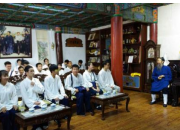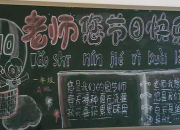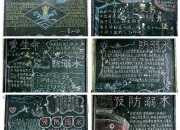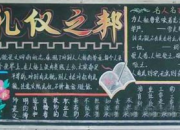六级考试试卷与答案(13)
时间:2021-08-312002年6月大学英语6级试题答案(更多信息请访问http://www.kuangfeng.com)
Part I Listening Comprehension
Section A
1~10 A D B D B A B D C B
Section B
11~20 C A B C B C D D C B
Part II Reading Comprehension
21~30 A D C C B C A D B A
31~40 B A D A C B A D C D
Part Ⅲ Vocabulary
41~50 B B A C D C A B A D
51~60 A B D C D A A C D A
61~70 A D D C D C B C D B
Part IV Error Correction
S1. ∧a
S2. filling —— filled
S3. 删除though
S4. This —— What
S5. was —— where
S6. dissimilar —— similar or close
S7. lies —— lie
S8. that —— which
S9. it —— them
S10. late —— later
2016年6月六级考试试卷、答案
Part I Listening Comprehension (20 minutes)
Section A
Directions: In this section, you will hear 10 short conversations. At the end of each conversation, a question will be asked about what was said - Both the conversation and the question will be spoken only once. After each question there will be a pause. During the pause, you must read the four choices marked A), B), C) and D), and decide which is the best answer. Then mark the corresponding letter on the Answer Sheet with a single line through the centre.
Example: You will hear:
You will read:
A) 2 hours.
B) 3 hours.
C) 4 hours.
D) 5 hours.
From the conversation we know that the two are talking about some work they will start at 9 o’clock in the morning and have to finish at 2 in the afternoon. Therefore, D) “5 hours” is the correct answer. You should choose [A] on the Answer Sheet and mark it with a single line through the centre.
Sample Answer [A] [B] [C] [D]
1. A) Riding a horse.
B) Shooting a movie.
C) Playing a game.
D) Taking a photo.
2. A) She'11 type the letter for the man.
B) She'll teach the man to operate the computer.
C) She doesn't think his sister is a good typist.
D) She thinks the man should buy a computer.
3. A) John can share the magazine with her.
B) She wants to borrow John's card.
C) She'll let John use the journal first.
D) John should find another copy for himself.
4. A) She promised to help the man.
B) She came a long way to meet the man.
C) She took the man to where he wanted to go.
D) She suggested a way out of the difficulty for the man.
5. A) The train seldom arrives on time.
B) The schedule has been misprinted.
C) The speakers arrived at the station late.
D) The company has trouble printing a schedule.
6. A) To find a better science journal in the library.
B) Not to miss any chance to collect useful information.
C) To buy the latest issue of the magazine.
D) Not to subscribe to the journal.
7. A) She wants to borrow the man's student ID card.
B) The tickets are less expensive than she expected.
C) She won't be able to get any discount for the ticket.
D) The performance turned out to be disappointing.
8. A) Do the assignments towards the end of the semester.
B) Quit the history course and choose another one instead.
C) Drop one course and do it next semester.
D) Take courses with a lighter workload.
A) The organization of a conference.
B) The cost of renting a conference room.
C) The decoration of the conference room.
D) The job of cleaning up the dining-room.
10. A) Meet his client. C) Work at his office.
B) Prepare the dinner. D) Fix his car.
Section B
Directions: In this section, you will hear 3 short passages. At the end of each passage, you will hear some questions. Both the passage and the questions will be spoken only once. After you hear a question, you must choose the best answer from the four choices marked A), B), C) and D). Then mark the corresponding letter on the Answer Sheet with a single line through the centre.
Passage One
Questions 11 to 13 are based on the passage you have just heard.
11. A) One of the bridges between North and South London collapsed.
B) The heart of London was flooded.
C) An emergency exercise was conducted.
D) 100 people in the suburbs were drowned.
12. A) 50 underground stations were made waterproof.
B) A flood wall was built.
C) An alarm system was set up.
D) Rescue teams were formed.
13. A) Most Londoners were frightened.
B) Most Londoners became rather confused.
C) Most Londoners took Exercise Floodcall calmly.
D) Most Londoners complained about the trouble caused by Exercise Floodcall.
Passage Two
Questions 14 to 16 are based on the passage you have just heard.
14. A) It limited their supply of food. C) It destroyed many of their nests.
B) It made their eggshells too fragile. D) It killed many baby bald eagles.
15. A) They found ways to speed up the reproduction of bald eagles.
B) They developed new types of feed for baby bald eagles.
C) They explored new ways to hatch baby bald eagles.
D) They brought in bald eagles from Canada.
16. A) Pollution of the environment C) Over-killing by hunters.
B) A new generation of pest killers. D) Destruction of their natural homes.
Passage Three
Questions 17 to 20 are based on the passage you have just heard.
17. A) Whether it can be detected and checked.
B) Whether it will lead to widespread food shortage.
C) Whether global warming will speed up in the future.
D) Whether it will affect their own lives.
18. A) Many species have moved further north.
B) Many new species have come into existence.
C) Many species have developed a habit of migration.
D) Many species have become less sensitive to climate.
19. A) Storms and floods. C) Less space for their growth.
B) Disease and fire. D) Rapid increase of the animal population.
20. A) They will gradually die out.
B) They will be able to survive in the preserves.
C) They will have to migrate to find new homes.
D) They will face extinction without artificial reproduction.
Part II Reading Comprehension (35 minutes)
Directions: There are 4 passages in this part. Each passage is followed by some questions or unfinished statements. For each of them there are four choices marked A), B), C) and D). You should decide on the best choice and mark the corresponding letter on the Answer Sheet with a single line through the centre.
Passage One
Questions 21 to 25 are based on the following passage.
In the villages of the English countryside there are still people who remember the good old days when no one bothered to lock their doors. There simply wasn't any crime to
Amazingly, these happy times appear still to be with us in the world's biggest community. A new study by Dan Farmer, a gifted programmer, using an automated investigative program of his own called SATAN, shows that the owners of well over half of all World Wide Web sites have set up home without fitting locks to their doors.
SATAN can try out a variety of well-known hacking (黑客的) tricks on an Internet site without actually breaking in. Farmer has made the program publicly available, amid much criticism. A person with evil intent could use it to hunt down sites that are easy to burgle (闯入……行窃).
But Farmer is very concerned about the need to alert the public to poor security and, so far, events have proved him right. SATAN has done more to alert people to the risks than cause new disorder.
So is the Net becoming more secure? Far from it. In the early days, when you visited a Web site your browser simply looked at the content. Now the Web is full of tiny programs that automatically download when you look at a Web page, and run on your own machine. These programs could, if their authors wished, do all kinds of nasty things to your computer.
At the same time, the Net is increasingly populated with spiders, worms, agents and other types of automated beasts designed to penetrate the sites and seek out and classify information. All these make wonderful tools for antisocial people who want to invade weak sites and cause damage.
But let's look on the bright side. Given the lack of locks, the Internet is surely the world's biggest (almost) crime-free society. Maybe that is because hackers are fundamentally honest. Or that there currently isn't much to steal. Or because vandalism ( 恶意破坏) isn't much fun unless you have a peculiar dislike for someone.
Whatever the reason, let's enjoy it while we can. But expect it all to change, and security to become the number one issue, when the most influential inhabitants of the Net are selling services they want to be paid for.
21. By saying “... owners of well over half of all World Wide Web sites have set up home without fitting locks to their doors" (Lines 3-4, Para. 2), the author means that _____.
A) those happy times appear still to be with us
B) there simply wasn't any crime to worry about
C) many sites are not well-protected
D) hackers try out tricks on an Internet site without actually breaking in
22. SATAN, a program designed by Dan Fanner can be used ____________.
A) to investigate the security of Internet sites
B) to improve the security of the Internet system
C) to prevent hackers from breaking into websites
D) to download useful programs and information
23. Fanner's program has been criticized by the public because.
A) it causes damage to Net browsers
B) it can break into Internet sites
C) it can be used to cause disorder on all sites
D) it can be used by people with evil intent
24. The author's attitude toward SATAN is _____.
A) enthusiastic C) positive
B) critical D) indifferent
25. The author suggests in the last paragraph that.
A) we should make full use of the Internet before security measures are strengthened
B) we should alert the most influential businessmen to the importance of security
C) influential businessmen should give priority to the improvement of Net security
D) net inhabitants should not let security measures affect their joy of surfing the Internet
Passage Two
Questions 26 to 30 are based on the following passage.
I came away from my years of teaching on the college and university level with a conviction that enactment (扮演角色), performance, dramatization are the most successful forms of teaching. Students must be incorporated, made, so far as possible, an integral part of the learning process. The notion that learning should have in it an element of inspired play would seem to the greater part of the academic establishment merely silly, but that is nonetheless the case. Of Ezekiel Cheever, the most famous schoolmaster of the Massachusetts Bay Colony, his onetime student Cotton Mather wrote that he so planned his lessons that his pupils "came to work as though they came to play," and Alfred North Whitehead, almost three hundred years later, noted that a teacher should make his/her students "glad they were there."
Since, we are told, 80 to 90 percent of all instruction in the typical university is by the lecture method, we should give close attention to this form of education. There is, I think, much truth in Patricia Nelson Limerick's observation that "lecturing is an unnatural act, an act for which God did not design humans. It is perfectly all right, now and then, for a human to be possessed by the urge to speak, and to speak while others remain silent. But to do this regularly, one hour and 15 minutes at a time ... for one person to drag on while others sit in silence? ... I do not believe that this is what the Creator ... designed humans to do."
The strange, almost incomprehensible fact is that many professors, just as they feel obliged to write dully, believe that they should lecture dully. To show enthusiasm is to risk appearing unscientific, unobjective; it is to appeal to the students' emotions rather than their intellect. Thus the ideal lecture is one filled with facts and read in an unchanged monotone.
The cult (推崇) of lecturing dully, like the cult of writing dully, goes back, of course, some years. Edward Shils, professor of sociology, recalls the professors he encountered at the University of Pennsylvania in his youth. They seemed "a priesthood, rather uneven in their merits but uniform in their bearing; they never referred to anything personal. Some read from old lecture notes and then haltingly explained the thumb-worn last lines. Others lectured from cards that had served for years, to judge by the worn edges .... The teachers began on time, ended on time, and left the room without saying a word more to their students, very seldom being detained by questioners .... The classes were not large, yet there was no discussion-. No questions were raised in class, and there were no office hours."
26. The author believes that a successful teacher should be able to _____.
A) make dramatization an important aspect of students’ learning
B) make inspired play an integral part of the learning process
C) improve students' learning performance
D) make study just as easy as play
27. The majority of university professors prefer the traditional way of lecturing in the belief that _________________.
A) it draws the close attention of the students
B) it conforms in a way to the design of the Creator
C) it presents course content in a scientific and objective manner
D) it helps students to comprehend abstract theories more easily
28. What the author recommends in this passage is that _________.
A) college education should be improved through radical measures
B) more freedom of choice should be given to students in their studies
C) traditional college lectures should be replaced by dramatized performances
D) interaction should be encouraged in the process of teaching
29. By saying "They seemed 'a priesthood, rather uneven in their merits but uniform in their bearing...'" (Lines 3-4, Para. 4), the author means that _____.
A) professors are a group of professionals that differ in their academic ability but behave in the same way
B) professors are like priests wearing the same kind of black gown but having different roles to play
C) there is no fundamental difference between professors and priests though they differ in their merits
D) professors at the University of Pennsylvania used to wear black suits which made them look like priests
30. Whose teaching method is particularly commended by the author?
A) Ezekiel Cheever's. C) Alfred North Whitehead's.
B) Cotton Mather's. D) Patricia Nelson Limerick's.
Passage Three
Questions 31 to 35 are based on the following passage.
Take the case of public education alone. The principal difficulty faced by the schools has been he tremendous increase in the number of pupils. This has been caused by the advance of the legal age for going into industry and the impossibility of finding a job even when the legal age has been reached. In view of the technological improvements in the last few years, business will require in he future proportionately fewer workers than ever before. The result will be still further raising of he legal age for going into employment, and still further difficulty in finding employment when hat age has been attained. If we cannot put our children to work, we must put them in school.
We may also be quite confident that the present trend toward a shorter day and a shorter week will be maintained. We have developed and shall continue to have a new leisure class. Already the public agencies for adult education are swamped by the tide that has swept over them since depression began. They will be little better off when it is over. Their support must come from the taxpayer.
It is surely too much to hope that these increases in the cost of public education can be borne by the local communities. They cannot care for the present restricted and inadequate system. The local communities have failed in their efforts to cope with unemployment. They cannot expect to cope with public education on the scale on which we must attempt it. The answer to the problem of unemployment has been Federal relief. The answer to the problem of public education may have to be much the same, and properly so. If there is one thing in which the citizens of all parts of the country have an interest, it is in the decent education of the citizens of all parts of the country. Our income tax now goes in part to keep our neighbors alive. It may have to go in part as well to make our neighbors intelligent. We are now attempting to preserve the present generation through Federal relief of the destitute (贫民). Only a people determined to ruin the next generation will refuse such Federal funds as public education may require.
31. What is the passage mainly about?
A) How to persuade local communities to provide more funds.
B) How to cope with the shortage of funds for public education.
C) How to solve the rising unemployment problem.
D) How to improve the public education system.
32. What is the reason for the increase in the number of students?
A) The requirement of educated workers by business.
B) Raising of the legal age for going to work.
C) The trend toward a shorter workday.
D) People's concern for the future of the next generation.
33. The public agencies for adult education will be little better off because _____.
A) the unemployed are too poor to continue their education
B) a new leisure class has developed
C) they are still suffering from the depression
D) an increase in taxes could be a problem
34. According to the author, the answer to the problem of public education is that the Federal government _____. .
A) should allocate Federal funds for public education
B) should demand that local communities provide support
C) should raise taxes to meet the needs of public education
D) should first of all solve the problem of unemployment
35. Why does the author say "Only a people determined to ruin the next generation will refuse such Federal funds as public education may require" (Lines 10-11, Para. 3)?
A) Only by appropriating adequate Federal funds for education can the next generation have a bright future.
B) Citizens of all parts of the country agree that the best way to support education is to use Federal funds.
C) people all over the country should make contributions to education in the interest of the next generation.
D) Educated people are determined to use part of the Federal funds to help the poor.
Passage Four
Questions 36 to 40 are based on the following passage.
A new high-performance contact lens under development at the department for applied physics at the University of Heidelberg will not only correct ordinary vision defects but will enhance normal night vision as much as five times, making people's vision sharper than that of cats.
Bille and his team work with an optical instrument called an active mirror — a device used in astronomical telescopes to spot newly emerging stars and far distant galaxies. Connected to a wave-front sensor that tracks and measures the course of a laser beam into the eye and back, the aluminum mirror detects the deficiencies of the cornea, the transparent protective layer covering the lens of the human eye. The highly precise data from the two instruments — which, Bille hopes, will one day be found at the opticians (眼镜商) all over the world — serve as a basis for the production of completely individualized contact lenses that correct and enhance the wearer's vision.
By day, Bille's contact lenses will focus rays of light so accurately on the retina (视网膜)that the image of a small leaf or the outline of a far distant tree will be formed with a sharpness that surpasses that of conventional vision aids by almost half a diopter ( 屈光度). At night, the lenses have an even greater potential. "Because the new lens — in contrast to the already existing ones — also works when it's dark and the pupil is wide open," says Bille, "lens wearers will be able to identify a face at a distance of 100 meters" — 80 meters farther than they would normally be able to see. In his experiments night vision was enhanced by an even greater factor: in semi-darkness, test subjects could see up to 15 times better than without the lenses.
Bille's lenses are expected to reach the market in the year 2000, and one tentative plan is to use the Internet to transmit information on patients' visual defects from the optician to the manufacturer, who will then produce and mail the contact lenses within a couple of days. The physicist expects the lenses to cost about a dollar a pair, about the same as conventional one-day disposable lenses.
36. The new contact lens is meant for _____________.
A) astronomical observations C) those with vision defects
B) the night blind D) optical experiments
37. What do the two instruments mentioned in the second paragraph (Line 5) refer to?
A) The astronomical telescope and the wave-front sensor.
B) The aluminum mirror and the laser beam.
C) The active mirror and the contact lens.
D) The aluminum mirror and the wave-front sensor.
38. Individualized contact lenses (Line 7, Para. 2) are lenses designed _____.
A) to work like an astronomical telescope
B) to suit the wearer's specific needs
C) to process extremely accurate data
D) to test the wearer's eyesight
39. According to Bille, with the new lenses the wearer's vision _____.
A) will be far better at night than in the daytime
B) may be broadened about 15 times than without them
C) can be better improved in the daytime than at night
D) will be sharper by a much greater degree at night than in the daytime
40. Which of the following is true about Bille's lenses?
A) Their production process is complicated.
B) They will be sold at a very low price.
C) They have to be replaced every day.
D) Purchase orders can be made through the Internet.
Part III Vocabulary (20 minutes)
Directions: There are 30 incomplete sentences in this part. For each sentence there are four choices marked A), B), C) and D). Choose the ONE answer that best completes the sentence. Then mark the corresponding letter on the Answer Sheet with a single line through the centre.
41. In November 1987 the government _____ a public debate on the future direction of the official sports policy.
A) initiated C) induced
B) designated D) promoted
42. I found it difficult to _____ my career ambitions with the need to bring up my children.
A) consolidate C) reconcile
B) amend D Intensify
43. We all enjoy our freedom of choice and do not like to see it_____ when it is within the legal and moral boundaries of society.
A) compacted C) dispersed
B) restricted D)delayed
44. It is fortunate for the old couple that their son's career goals and their wishes for him _____.
A) coincide C) conform
B) comply D) collaborate
45. Allen will soon find out that real life is seldom as simple as it is _____ in commercials.
A) permeated C) depicted
B) alleged D) drafted
46. Europe's earlier industrial growth was _____ by the availability of key resources, abundant and cheap labor, coal, iron ore, etc.
A) constrained C) remained
B) detained D) sustained
47. As the trial went on, the story behind the murder slowly _____ itself.
A) convicted C) haunted
B) released D) unfolded
48. We’ve just installed a fan to _________________ cooking smells from the kitchen.
A) eject C) expel
C) exclude D) exile
49. Retirement is obviously a very complex _____ period; and the earlier you start planning for it, the better.
A) transformation C) transaction
B) transmission D) transition
50. Mutual respect for territorial _____is one of the bases upon which our two countries develop relationships.
A) unity C) entirety
B) integrity D) reliability
51. As one of the youngest professors in the university, Mr. Brown is certainly on the _____ of a brilliant career.
A) porch C) course
B) edge D) threshold
52. We work to make money, but it's a _____ that people who work hard and long often do not make the most money.
A) paradox c) dilemma
B) prejudice D) conflict
53. The design of this auditorium shows a great deal of _____. We have never seen such a building before.
A) invention C) originality
B) illusion D) orientation
54. The damage to my car was _____. in the accident, but I have a lingering fear even today.
A) insufficient C) ambiguous
B) ignorant D) negligible
55. Very few people could understand the lecture the professor delivered because its subject was very_____.
A) obscure C) dubious
B) indefinite D) intriguing
56. Diamonds have little __________ value and their price depends almost entirely on their scarcity.
A) intrinsic
B) eternal
C) subtle
D) inherent
57. Doctors are interested in using lasers as a surgical tool in operations on people who are _____ to heart attack.
A) infectious C) accessible
B) disposed D) prone
58. Many countries have adopted systems of_____ education in order to promote the average level of education.
A) compulsory C) constrained
B) cardinal D) conventional
59. I had eaten Chinese food often, but I could not have imagined how_____ and extravagant a real Chinese banquet could be,
A) prominent C) handsome
B) fabulous D) gracious
60. They are _____ investors who always make thorough investigations both on local and international markets before making an investment.
A) implicit C) cautious
B) conscious D) indecisive
61. In addition to the rising birthrate and immigration, the _____death rate contributed to the population growth.
A) inclining C) declining
B) increasing D) descending
62. Because of the _____ noise of traffic I couldn't get to sleep last night.
A) prevalent C) provocative
B) perpetual D) progressive
63. Don't let such a _____ matter as this come between us so that we can concentrate on the major issue.
A) trivial C) partial
B) slight D) minimal
64. If you go to the park every day in the morning, you will _____ find him doing physical exercise there.
A) ordinarily C) logically
B) variably D) persistently
65. Although she's a(n) _______________talented dancer, she still practices several hours every day.
A) traditionally
B) additionally
C) exceptionally
D) rationally
66. The cut in her hand has healed completely, without leaving a.
A) defect C) wound
B) sign D) scar
67. The idea is to ___________ the frequent incidents of collision to test the strength of the wind-shields.
A) assemble
B) simulate
C) accumulate
D) forge
68. Most people in the modem world ________________ freedom and independence more than anything else.
A) embody
B) cherish
C) fascinate
D) illuminate
69.1 told him that I would _____________ him to act for me while I was away from office..
A) authorize
B) justify
C) rationalize
D) identify
70. Over the past ten years, natural gas production has remained steady, but _______________ has risen steadily.
A) dissipation C) consumption
B) disposal D) expenditure
Part IV Error Correction (15 minute)
Directions: This part consists of a short passage. In this passage, there are altogether 10 mistakes, one in each numbered line. You may have to change a word, add a word or a word. Mark out the mistakes and put the corrections in the blanks provided. If you change a word, cross it out and write the correct word in the corresponding blank. If you add a word, put an ion mark ( ) in the right place and write the missing word in the blank. If you a word, cross it out and put a slash (/) in the blank.
The Seattle Times Company is one newspaper firm that
has recognized the need for change and done something about
it. In the newspaper industry, papers must reflect the diversity
of the communities to which they provide information.
It must reflect that diversity with their news coverage or risk S1.____________
losing their readers' interest and their advertisers' support.
Operating within Seattle, which has 20 percents racial S2. ___________
minorities, the paper has put into place policies an
d procedures for hiring and maintain a diverse workforce. The S3. __________
underlying reason for the change is that for information to be
fair, appropriate, and subjective, it should be reported by the S4. ____________
same kind of population that reads it.
A diversity committee composed of reporters, editors, and
photographers meets regularly to value the Seattle Times’ S5. ____________
content and to educate the rest of the newsroom staff about
diversity issues. In an addition, the paper instituted a content S6. ____________
audit (审查) that evaluates the frequency and manner of
representation of woman and people of color in photographs. S7. _____________
Early audits showed that minorities were pictured far too
infrequently and were pictured with a disproportion
ate number of negative articles. The audit results from S8. _____________
improvement in the frequency of majority representation and S9. _____________
their portrayal in neutral or positive situations. And, with a S10. ____________
result, the Seattle Times has improved as a newspaper.
The diversity training and content audits helped the Seattle
Times Company to win the Personnel Journal Optimal Award
for excellence in managing change.
Part V
Writing Changes on State-owned Houses and Private Houses of China
答案:
Part I. Listening Comprehension
1-10 D B A C A D C C B A
11-20 C B C B D D D A B C
Tapescripts:
1. W: Raise your hat a little bit and hold the saddle and smile a little. You look wonderful posing like that. Shall I press the shutter?
M: Wait a minute. Let me put on a cowboy hat.
Q: What are the speakers doing?
2. M: I’m still waiting for my sister to come back and type the application letter for me.
W: Why bother her? I’ll show you how to use the computer. It’s quite easy?
Q: What does the woman mean?
3. M: Hey, where did you find the journal? I need it, too.
W: Right here on the shelf. Don’t worry, John. I’ll take it out on my card for both of us.
Q: What does the woman mean?
4. M: Thank you for your helpful assistance. Otherwise, I’d surely have missed it. The place is so out of the way.
W: It was a pleasure meeting you. Good-bye.
Q: Why does the man thank the woman?
5. W: We are informed that the 11:30 train is late again.
M: Why did the railway company even bother to print a schedule?
Q: What do we learn from the conversation?
6. M: Maybe I ought to subscribe to the Engineering Quarterly. It contains a lot of useful information.
W: Why not read it in the library and save the money?
Q: What is the woman advice to the man?
7. M: I’ve been waiting all week for this concert. The performance is said to be excellent. And with our student discount, the tickets will be real cheap.
W: Ah ah…I’m afraid I left my student ID card in the dorm.
Q: What does the woman imply?
8. M: Mr. Smith, our history professor, announced that we would be doing two papers and three exams this semester. I wonder how I’m going to pour through when other courses have similar requirements.
W: Well, can’t you drop one course and pick it up the next semester?
Q: What does the woman suggest the man do?
9. W: Renting the conference room at the hotel will cost us too much. We’re already running in the red.
M: How about using our dining room for the meeting?
Q: What’s worrying the woman?
10.W: Jerry, can you pick me up after work today? I left my car at the garage.
M: I’m afraid I can’t. I’ve scheduled an appointment with a client at dinner time.
Q: What is the man going to do?
Part II Reading Comprehension
21. C 22.A 23. D 24. C 25. C
26. B 27. C 28. D 29. A 30. A
31. B 32. B 33. B 34. A 35. C
36. C 37. D 38. B 39. D 40. B
Part III Vocabulary
41. A 42. C 43. B 44. A 45. C 46. D 47. D 48. C 49. D 50. B
51. D 52. A 53. C 54. D 55. A 56. A 57. D 58. A 59. C 60. C
61. C 62. B 63. A 64. B 65. C 66. D 67. B 68. B 69. A 70. C
Part IV Error Correction
S1. it-they
S2. percents-percent
S3. maintain-maintaining
S4. subjective-objective
S5. meets- meet
S6. 去掉an___
S7. woman-women
S8. from- in
S9. majority-minority
S10. with-as
Part V. 参考例文
Ownership of Houses in a Big City in China
As can be seen from the chart, ownership of houses in Beijing has significantly changed in the 1990s. In 1990, 75 percent of the houses were state-owned. Five years later, the ratio of state-owned houses to private ones was 60 to 40. But from then on, the ownership changed dramatically and by the end of the century, 80 percent of houses were private.
There might have been two main reasons. One of the reasons was the policy of the government. In the 1990s, China carried on with its reform policy and the government called for privatization of the sate-owned estate. But it took time for the reform to come into effect. But from 1995 on when people have recognized its significance, the reformation took bigger steps. Another reason was that the people were getting better off and they could afford buying their own houses.
Such changes have had great impact on individuals as well as the society. On one hand, the individuals must save money to buy an apartment or to pay the mortgage. On the other hand, a heaven burden has been taken off the government so that it can take more effective measures to improve people’s life.
2016年6月六级B卷考试试题、答案
Part I Listening Comprehension (20 minutes)
Section A
Directions: In this section, you will hear 10 short conversations. At the end of each conversation, a question will be asked about what was said. Both the conversation and the question will be spoken only once. After each question the re will be a pause. During the pause, you must read the four choices marked A), B), C) and D), and decide which is the best answer. Then mark the corresponding letter on the Answer Sheet with a single line through the centre.
Example: You will hear:
You will read:
A) 2 hours.
B) 3 hours.
C) 4 hours.
D) 5 hours.
From the conversation we know that the two are talking about some work they will start at 9 o'clock in the morning and have to finish by 2 in the afternoon.
Therefore, D) "5 hours" is the correct answer. You should choose [D] on the Answer Sheet and mark it with a single line through the centre.
Sample Answer [A] [B [C] [D]
1. A) Dick has bad taste in clothes.
B) The color of Dick's jacket is too dark.
C) Dick's trousers don't match his jacket.
D) Dick looks funny in that yellow jacket.
2. A) Get the wallet for the man.
B) Call the police station
C) Show the man her family pictures.
D) Ask to see the man's driver's license.
3. A) She is afraid the new epidemic SARS will soon spread all over town.
B) The temperature is not as high as the man claims.
C) The room will get cool if the man opens the windows.
D) She is following instructions not to use the air-conditioning.
4. A) She was never persistent in anything she did.
B) She had a unique way of staying healthy.
C) She stopped exercising two years ago.
D) She lost a lot of weight in two years.
5. A) The application arrived a week earlier than expected.
B) The job has been given to someone else.
C) The man is not suitable for the position,
D) She had received only one application letter.
6. A) He thinks his mother should get the clothes back.
B) He will go before the laundry is closed.
C) He's unwilling to fetch the laundry.
D) He has already picked up the laundry.
7. A)At an international trade fair.
B) At an electronics company
C) At a DVD counter in a music store.
D) At a shopping center
8. A) The woman regrets going to the movie.
B) The woman prefers light movies before sleep.
C) The woman saw a comedy instead of a horror movie.
D) The woman hated the man talking throughout the movie.
9. A) He is a man with professional expertise.
B) He is not likely to get the job.
C) He is not easy to get along with.
D) He is the fight man to get the job done.
10. A) It is a very good place to relax.
B) It should revolutionize its technology.
C) It should change its concept of operation.
D) It is being forced out of the entertainment industry.
Section B
Directions: In this section, you will hear 3 short passages. At the end of each passage, you will hear some questions. Both the passage and the questions will be spoken only once. After you hear a question, you must choose the best answer from the four choice marked A), B), C) and D). Then mark the corresponding letter on the Answer Sheet with a single line through the centre.
Passage One
Questions 11 to 13 are based on the passage you have just heard.
11. A) He was the most distinguished diplomat in American history.
B) He set up the first university in America.
C) He was one of the earliest settlers in America.
D) He can best represent the spirit of early America.
12. A) He represented Washington in negotiations with Britain.
B) He provided Washington with a lot of money.
C) He persuaded France to support Washington.
D) He served as a general in Washington's army.
13. A) As one of the founding fathers of the United States.
B) As one of the greatest American scholars.
C) As one of America's most ingenious inventors.
D) As one of the most famous activists for human rights.
Passage Two
Questions 14 to 17 are based on the passage you have just heard.
14. A) Because we might meet many successful executives in the media industry.
B) Because we might be offered a dish of insects.
C) Because nothing but freshly cooked insects are served
D) Because some yuppies like to horrify guests with insects as food.
15. A)On the Internet.
B) In the supermarket.
C)In the seafood market.
D) From yuppie clubs.
16. A) It's safe to eat.
B) It's easy to prepare
C) It's exotic in appearance.
D) It's tasty and healthful.
17. A) It is unlikely to be enjoyed by most People.
B) It will have to be changed to suit local tastes.
C) It will become the first course at dinner parties.
D) It will be consumed by more and more young people.
Passage Three
Questions 18 to 20 are based on the passage you have just heard.
18. A) They don't have enough service windows.
B) Their business hours are limited. ,,
C) Their safety measures are inadequate.
D) Their banking procedures are complicated.
19. A) People who have computers at home.
B) Young people who are fond of modern technology.
C) Young people who are wealthy and well-educated.
D) People who are in the habit of switching from one bank to another.
20. A) To provide services for distant clients.
B) To compete for customers.
C) To reduce the size of their staff.
D) To expand their operations at a lower cost.
Part II Reading Comprehension (35 minutes)
Directions: There tire 4 passages in this part. Each passage is followed by some questions or unfinished statements. For each of them there are four choices marked A), B), C) and D). You should decide on the best choice and mark the corresponding letter on the, Answer Sheet with a single line through the centre.
Passage One
Questions 21 to 25 are based on the following passage.
Given the lack of fit between gifted students and their schools, it is not surprising that such students often have little good to say 'about their school experience. In one study of 400 adults who had achieved distinction in all areas of life, researchers found that three-fifths of these individuals either did badly in school or were unhappy in school. Few MacArthur Prize fellows, winners of the MacArthur Award for creative accomplishment, had good things to say about their precollegiate schooling if they had not been placed in advanced programs. Anecdotal ( 名人轶事) reports support this. Pablo Picasso, Charles Darwin, Mark Twain, Oliver Goldsmith, and William Butler Yeats all disliked school. So did Winston Churchill, who almost failed out of Harrow, an elite British school. About Oliver Goldsmith, one of his teachers remarked, "Never was so dull a boy." Often these children realize that they know more than their teachers, and their teachers often feel that these children are arrogant, inattentive, or unmotivated.
Some of these gifted people may have done poorly in school because their gifts were not scholastic. Maybe we can account for Picasso in this way. But most fared poorly in school not because they lacked ability but because they found school unchallenging and consequently lost interest. Yeats described the lack of fit between his mind and school: "Because I had found it difficult to attend to anything less interesting than my own thoughts, I was difficult to teach." As noted earlier, gifted children of all kinds tend to be strong-willed nonconformists. Nonconformity
and stubbornness (and Yeats's level of arrogance and self-absorption) are likely to lead to Conflicts with teachers.
When highly gifted students in any domain talk about what was important to the development of their abilities, they are far more likely to mention their families than their schools or teachers. A writing prodigy (神童) studied by David Feldman and Lynn Goldsmith was taught far more about writing by his journalist father than his English teacher. High-IQ children, in Australia studied by Miraca Gross had much more positive feelings about their families than their schools. About half of the mathematicians studied by Benjamin Bloom had little good to say about school. They all did well in school and took honors classes when available, and some skipped grades.
21. The main point the author is making about schools is that .
A) they should enroll as many gifted students as possible
B) they should organize their classes according to the students' ability
C) they are often incapable of catering to the needs of talented students
D) they should satisfy the needs of students from different family backgrounds
22. The author quotes the remarks of one of Oliver Goldsmith's teachers .
A) to show how poor Oliver's performance was at school
B) to illustrate the strong will of some gifted children
C) to explain how dull students can also be successful
D) to provide support for his argument
23. Pablo Picasso is listed among the many gifted children who .
A) could not cope with their studies at school successfully
B) paid no attention to their teachers in class
C) contradicted their teachers much too often
D) behaved arrogantly and stubbornly in the presence of their teachers
24. Many gifted people attributed their success .
A) less to their systematic education than to their talent
B) mainly to parental help and their education at home
C) both to school instruction and to their parents' coaching
D) more to their parents' encouragement than to school training
25. The root cause of many gifted students having bad memories of their school years is that .
A) they were seldom praised by their teachers
B) school courses failed to inspire or motivate them
C) their nonconformity brought them a lot of trouble
D) teachers were usually far stricter than their parents
Passage Two
Questions 26 to 30 are based on the following passage.
It's hardly news that the immigration system is a mess. Foreign nationals have long been slipping across the border with fake papers, and visitors who arrive in the U.S. legitimately often overstay their legal welcome without being punished. But since Sept. 11, it's become clear that terrorists have been shrewdly factoring the weaknesses of our system into their plans. In addition to their mastery of forging passports, at least three of the 19 Sept. 11 hijackers (劫机者) were here on expired visas. That's been a safe bet until now. The Immigration and Naturalization Service (INS) ( 移民归化局 ) lacks the resources, and apparently the inclination, to keep track of the estimated 2 million foreigners who have intentionally overstayed their welcome.
But this laxness (马虎) toward immigration fraud may be about to change. Congress has already taken some modest steps. The U.S.A. Patriot Act, passed in the wake of the Sept. 11 tragedy, requires the FBI, the Justice Department, the State Department and the INS to share more data, which will make it easier to stop watch-listed terrorists at the border.
But what's really needed, critics say, is even tougher laws and more resources aimed at tightening up border security. Reformers are calling for a rollback of rules that hinder law enforcement. They also want the INS to hire hundreds more border patrol agents and investigators to keep illegal immigrants out and to track them down once they're here. Reformers also want to see the INS set up a database to monitor whether visa holders actually leave the country when they are required to.
All these proposed changes were part of a new border-security bill that passed the House of Representatives but died in the Senate last week. Before Sept. 11, legislation of this kind had been blocked by two powerful lobbies: universities, which rely on tuition from foreign students who could be kept out by the new law, and business, which relies on foreigners for cheap labor. Since the attacks, they've backed off. The bill would have passed this time but for congressional maneuverings and is expected to be reintroduced and to pass next year.
Also on the agenda for next year: a proposal, backed by some influential law-makers, to split the INS into two agencies - a good cop that would tend to service functions like processing citizenship papers and a bad cop that would concentrate on border inspections, deportation and other functions. One reason for the division, supporters say, is that the INS has in recent years become too focused on serving tourists and immigrants. After the Sept. l 1 tragedy, the INS should pay more attention to serving the millions of ordinary Americans who rely on the nation's border security to protect them from terrorist attacks.
26. Terrorists have obviously taken advantage of .
A) the irresponsibility of the officials at border checkpoints
B) the legal privileges granted to foreigners
C) the excessive hospitality of the American people
D) the low efficiency of the Immigration and Naturalization Service
27. We learn from the passage that coordinated efforts will be made by various U.S. government agencies to .
A) limit the number Of immigrants to the U.S.
B) prevent the forgery of immigration papers
C) ward off terrorist suspects at the border
D). refuse the renewing of expired visas
28. It can be inferred from the passage that before Sept. 11, aliens with expired visas .
A) might stay on for as long as [hey wished
B) would be closely watched by FBI agents
C) would live in constant fear of deportation
D) might have them extended without trouble
29. It is believed by many that all these years the INS .
A) has been serving two contradictory functions '
B) has ignored the pleas of the two powerful lobbies
C) has over-emphasized its service functions at the expense of the nation's security
D) has been too liberal in granting visas to tourists and immigrants indiscriminately
30. Before Sept. 11, the U.S. Congress had been unable to pass stricter immigration laws because .
A) education and business circles cared little about national security
B) resources were not available for their enforcement
C) it was difficult to coordinate the efforts of the congressmen
D) they might have kept away foreign students and cheap labor
Passage Three
Questions 31 to 35 are based on the following passage.
It was the worst tragedy in maritime (航海的) history, six times more deadly than the Titanic.
When the German cruise ship Wilhelm Gustloff was hit by torpedoes (鱼雷) fired from a Russian submarine in the final winter of World War II, more than 10,000 people - mostly women, children and old people fleeing the final Red Army push into Nazi Germany - were packed aboard. An ice storm had turned the decks into frozen sheets that sent hundreds of families sliding into the sea as the ship tilted and began to go down. Others desperately tried to put lifeboats down. Some who succeeded fought off those in the water who had the strength to try to claw their way aboard. Most people froze immediately. I’ll never forget the screams," says Christa Ntitzmann, 87, one of the 1,200 survivors. She recalls watching the ship, brightly lit, slipping into its dark grave - and into seeming nothingness, rarely mentioned for more than half a century.
Now Germany's Nobel Prize-winning author Gtinter Grass has revived the memory of the 9,000 dead, including more than 4,000 children - with his latest novel Crab Walk, published last month. The book, which will be out in English next year, doesn't dwell on the sinking; its heroine is a pregnant young woman who survives the catastrophe only to say later: "Nobody wanted to hear about it, not here in the West (of Germany) and not at all in the East." The reason was obvious. As Grass put it in a recent interview with the weekly Die Woche: "Because the crimes we Germans are responsible for were and are so dominant, we didn't have the energy left to tell of our own sufferings.''
The long silence about the sinking of the Wilhelm Gustloff was probably unavoidable - and necessary. By unreservedly owning up to their country's monstrous crimes in the Second World War, Germans have managed to win acceptance abroad, marginalize ( 使...不得势 ) the neo- Nazis at home and make peace with their neighbors. Today's unified Germany is more prosperous and stable than at any time in its long, troubled history. For that, a half century of willful forgetting about painful memories like the German Titanic was perhaps a reasonable price to pay. But even the most politically correct Germans believe that they' ye now earned the right to discuss the full historical record. Not to equate German suffering with that of its victims, but simply to acknowledge a terrible tragedy.
31. Why does the author say the sinking of the Wilhelm Gustloff was the worst tragedy in maritime history?
A) It was attacked by Russian torpedoes.
B) It caused the largest number of casualties.
C) Most of its passengers were frozen to death.
D) Its victims were mostly women and children.
32. Hundreds of families dropped into the sea when .
A) the badly damaged ship leaned toward one side
B) a strong ice storm tilted the ship
C) the cruise ship sank all of a sudden
D) the frightened passengers fought desperately for lifeboats
33. The Wilhelm Gustloff tragedy was little talked about for more than half a century because Germans .
A) were eager to win international acceptance
B) had been pressured to keep silent about it
C) were afraid of offending their neighbors
D) felt guilty for their crimes in World War II
34. How does Gunter Grass revive the memory of the Wilhelm Gustloff tragedy?
A) By describing the ship's sinking in great detail.
B) By giving an interview to the weekly Die Woche.
C) By presenting the horrible scene of the torpedo attack.
D) By depicting the survival of a young pregnant woman.
35. It can be learned from the passage that Germans no longer think that .
A) the Wilhelm Gustloff tragedy is a reasonable price to pay for the nation's past misdeeds
B) Germany is responsible for the horrible crimes it committed in World War II
C) they will be misunderstood if they talk about the Wilhelm Gustloff tragedy
D) it-is wrong to equate their sufferings with those of other countries
Passage Four
Questions 36 to 40 are based on the following passage.
When we worry about who might be spying on our private lives, we usually think about the Federal agents. But the private sector outdoes the government every time. It's Linda Tripp, not the FBI, who is facing charges under Maryland's laws against secret telephone taping. It's our banks, not the Internal Revenue Service (IRS), that pass our private financial data to telemarketing firms.
Consumer activists are pressing Congress for better privacy laws without much result so far. The legislators lean toward letting business people track our financial habits virtually at will.
As an example of what's going on, consider U.S. Bancorp, which was recently sued for deceptive practices by the state of Minnesota. According to the lawsuit, the bank supplied a telemarketer called Member Works with sensitive customer data such as names, phone numbers, bank-account and credit-card numbers, Social Security numbers, account balances and credit limits.
With these customer lists in hand, Member Works started dialing for dollars - selling dental plans, videogames, computer software and other products and services. Customers who accepted a "free trial offer" had, 30 days to cancel. If the deadline passed, they were charged automatically through their bank or credit-card accounts. U.S. Bancorp collected a share of the revenues ...
Customers were doubly deceived, the lawsuit claims. They. didn't know that the bank was giving account numbers to MemberWorks. And if customers asked, they were led to think the answer was no.
The state sued MemberWorks separately for deceptive selling. The company denies that it did anything wrong. For its part, U.S. Bancorp settled without admitting any mistakes. But it agreed to stop exposing its customers to nonfinancial products sold by outside firms. A few top banks decided to do the same. Many other banks will still do business with MemberWorks and similar firms.
And banks will still be mining data from your account in order to sell you financial products, including things of little value, such as credit insurance and credit-card protection plans.
You have almost no protection from businesses that use your personal accounts for profit. For example, no federal law shields "transaction and experience" information - mainly the details of your bank and credit-card accounts. Social Security numbers are for sale by private firms. They've generally agreed not to sell to the public. But to businesses, the numbers are an open book. Self-regulation doesn't work. A firm might publish a privacy-protection policy, but who enforces it?
Take U.S. Bancorp again. Customers were told, in writing, that "all personal information you supply to us will be considered confidential." Then it sold your data to MemberWorks. The bank even claims that it doesn't "sell" your data at all. It merely "shares" it and reaps a profit. Now you know.
36. Contrary to popular belief, the author finds that spying on people's privacy .
A) is practiced exclusively by the FBI
B) is more prevalent in business circles
C) has been intensified with the help of the IRS
D) is mainly carried out by means of secret taping
37. We know from the passage that .
A) the state of Minnesota is considering drawing up laws to protect private information
B) most states are turning a blind eye to the deceptive practices of private businesses
C) legislators are acting to pass a law to provide better privacy protection
D) lawmakers are inclined to give a free hand to businesses to inquire into customers' buying habits
38. When the "free trial" deadline is over, you'll be charged without notice for a product or service if .
A) you happen to reveal your credit card number
B) you fail to cancel it within the specified period
C) you fail to apply for extension of the deadline
D) you find the product or service unsatisfactory
39. Businesses do not regard information concerning personal bank accounts as private because .
A) it is considered "transaction and experience" information unprotected by law
B) it has always been considered an open secret by the general public
C) its sale can be brought under control through self-regulation
D) its revelation will do no harm to consumers under the current protection policy
40. We can infer from the passage that .
A) banks will have to change their ways of doing business
B) "free trial" practice will eventually be banned
C) privacy protection laws will soon be enforced
D) consumers' privacy will continue to be invaded
Part HI Vocabulary (20 minutes)
Directions: There are 30 incomplete sentences in this part. For each sentence there are four choices marked A), B), C) and D). Choose the ONE answer that best completes the sentence. Then mark the corresponding letter on the Answer Sheet with a single line through the centre.
41. For many years the Japanese have the car market.
A) operated C) presided
B) occupied D) dominated
42. The bank is offering a to anyone who can give information about the robbery.
A) prize C) bonus
B) reward D) compliment
43. His illness first itself as severe stomach pains and headaches.
A) manifested C) expressed
B) displayed D) reflected
44. These continual in temperature make it impossible to decide what to wear.
A) fluctuations C) transitions
B) transformations D) exchanges
45. Before we move, we should some of the old furniture, so that we can have more room in the new house.
A) cancel C) discard
B) conceal D) dissipate
46. As we know, computers are used to store and information efficiently.
A) reclaim C) reconcile
B) reassure D) retrieve
47. It is a(n) that the French eat so much rich food and yet have a relatively low rate of heart disease.
A) paradox C) analogy
B) correlation D) illusion
48. The police are trying to what really happened.
A) assert C) ascertain
B) avert D) ascribe
49. The they felt for each other was obvious to everyone who saw them.
A) adherence C) sensitivity
B) affection D) sensibility
50. The relatives of those killed in the crash got together to seek .
A) compensation C) premium
B) refund D) repayment
51. He tried to hide his patch by sweeping his hair over to one side.
A) bleak C) bald
B) barren D) bare
52. Years after the accident he was still________ by images of death and destruction.
A) submerged C) twisted
B) dipped D) haunted
53. In spite of the________ , it seemed that many of the invited guests would still show up.
A) comparison C) distinction
B) controversy D) deviation
54. The government ________ a heavy tax on tobacco, which aroused opposition from the tobacco industry.
A) imposed C) prescribed
B) complied D) pronounced
55. The subject of safety must be placed at the top of the ________.
A) routine C) agenda
B) bulletin D) timetable
56. The old couple now still ________ for their beloved son, 30 years after his death.
A) mourn C) cherish
B) groan D) immerse
57. The post-World War II baby resulted in a 43 percent increase in the number of teenagers ________ in the 1960s and 1970s.
A) production C) prosperity
B) boost D) boom
58. High grades are supposed to ________ academic ability, but John's actual performance did not confirm this.
A) clarify C) certify
B) classify D) notify
59. You cannot imagine how I feel ________ with my duties sometimes.
A) overthrown C) overflowed
B) overwhelmed D) overturned
60. Coffee is the ________ of this district and brings local farmers a lot of money.
A) elite C) spice
B) majority D) staple
61. Although he was on a diet, the delicious food ________ him enormously.
A) distracted C) tempted
B) stimulated D) inspired
62. When construction can begin depends on how soon the ________ of the route is completed.
A) survey C) orientation
B) identity D) conviction
63. He said that ending the agreement would ________ the future of small or family-run shops, lead to fewer books being published and increase prices of all but a few bestsellers.
A) venture C) legalize
B) jeopardize D) expose
64. The boxer ________ and almost fell when his opponent hit him.
A) scattered C) staggered
B) shattered D) stamped
65. At first everything went well with the project but recently we have had a number of ________ with the machinery.
A) disturbances C) outputs
B) distortions D) setbacks
66. Anyone not paying the registration fee by the end of this month will be ________ to have withdrawn from the program.
A) deemed C) contemplated
B) anticipated D) acknowledged
67. It is generally known that New York is a city for ________ and a center for odd bits of information.
A) veterans C) victims
B) eccentrics D) pedestrians
68. In mountainous regions, much of the snow that falls is ________ into ice.
A) compiled C) embodied
B) dispersed D) compacted
69. Henry went through the documents again carefully for fear of ________ any important data.
A) relaying C) overlooking
B) revealing D) deleting
70. Elisabeth did not enter the museum at once, but________ in the courtyard.
A) dwelled C) resided
B) lingered D) delayed
Part IV Error Correction (15 minutes)
Culture refers to the social heritage of a people - the learned
patterns for thinking, feeling and acting that characterize a
population or society, include the expression of these patters in S1.
material things. Culture is compose of nonmaterial culture - S2.
abstract creations like values, beliefs, customs and institutional
arrangements - and material culture - physical object like S3.
cooking pots, computers and bathtubs. In sum, culture reflects
both the ideas we share or everything we make. In ordinary S4.
speech, a person of culture is the individual can speak another S5.
language - the person who is unfamiliar with the arts, music, S6.
literature, philosophy, or history. But to sociologists, to be
human is to be cultured, because of culture is the common world S7.
of experience we share with other members of our group.
Culture is essentially to our humanness. It provides a kind S8.
of map for relating to others. Consider how you feel your way
about social life. How do you know how to act in a classroom,
or a department store, or toward a person who smiles or laugh S9.
at you? Your culture supplies you by broad, standardized, S10.
ready-made answers for dealing with each of these situations.
Therefore, if we know a person's culture, we can understand
and even predict a good deal of his behavior.
Part V Writing (30 minutes)
For this part, you are allowed 30 minutes to write a letter to the editor of a newspaper complaining about the poor service of a bookstore. You should write at least 150 words according to the guidelines given below in Chinese.
设想你买了一本英文词典,发现有这样那样的质量问题,书店的服务态度又不好,因此给报社编辑写信。信中必须包括以下内容:
1、事情的起因
2、与书店交涉的经过
3、呼吁服务行业必须提高服务质量
答案:
听力:
1-5 CADDB
6-10 CAABC
11-15 DCABA
16-20 DABCB
阅读:
21-25 CDABB
26-30 DCACD
31-35 BADDC
36-40 BDBAD
词汇:
41-45 DBAAC
46-50 DACBA
51-55 CDBAC
56-60 ADCBD
61-65 CABCD
66-70 ABDCB
改错:
1. include --including
2. compose -- composed
3. object -- objects
4. or -- and
5. individual 后+ who
6. unfamiliar -- familiar
7. of去掉
8. essentially -- essential
9. laugh -- laughs
10. by -- with
作文:











